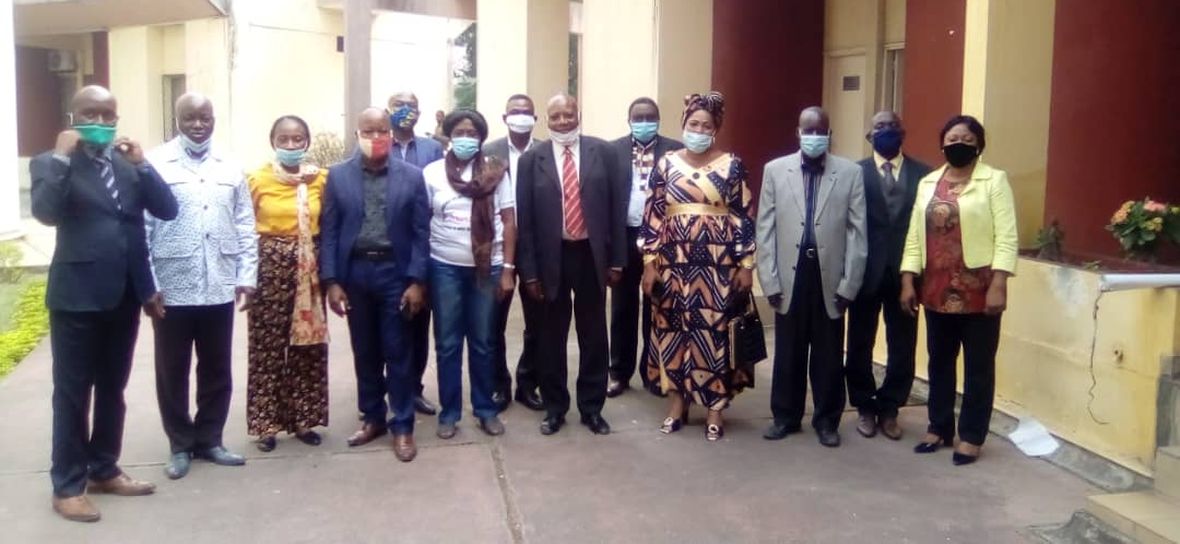The workshop which was organized by the Ministry of Energy and Hydraulics and facilitated by GWP-CAf and the Republic of Congo Country Water Partnership (GWP-Congo), took place in Brazzaville on July 9th 2020. This stakeholder consultation was held within the framework of the second round of reporting in 2020 on SDG 6 by implementing countries to create a data baseline to facilitate the implementation of IWRM. This monitoring and reporting process is supported by Global Water Partnership through the SDG 6 IWRM support program. Global Water Partnership Central Africa (GWP-CAf) has provided continuous support to implementing countries in the region from the 2019 regional workshop on implementing SDG 6 within the region to technical and material support. The first round of data collection for SDG 6 was done in 2017 and a major part of this year’s process focused on comparing both reports to track progress made and identify sections that need improvement.
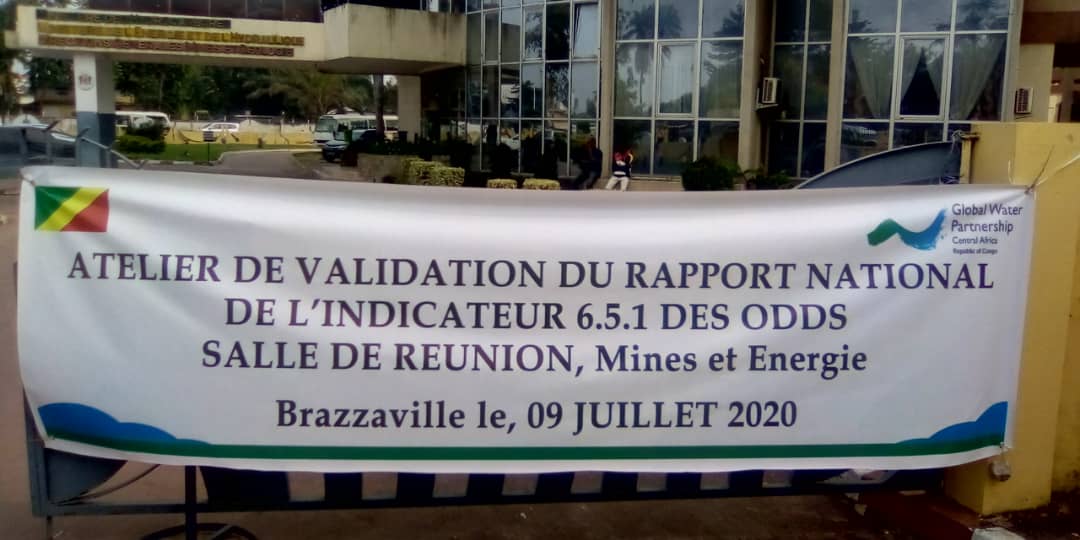
The acting Director General of Hydraulics, Mr. Alouna Armel chaired the consultation which brought togethe representatives from different government ministries and institutions, civil society, private sector, research institutions and transboundary basin organization. In his opening speech, Mr. Alouna emphasized the importance of reporting on SDG 6 notably, the identification of constraints in the implementation of IWRM. He urged participants to take active part in discussions to ensure the finalization of the report and concluded by expressing gratitude to GWP-CAf for the technical and financial support provided throughout the monitoring process.
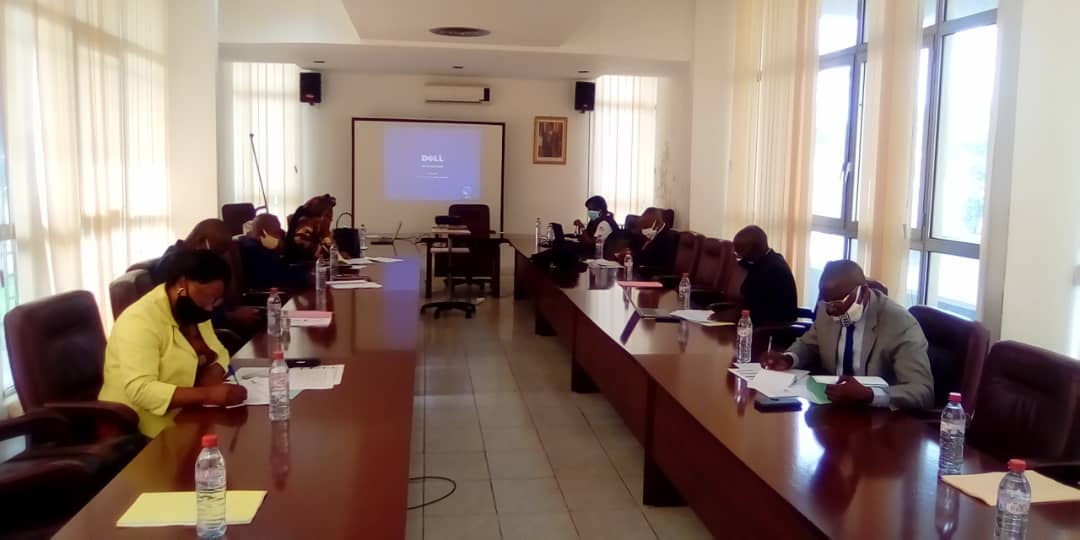
The stakeholder consultation kicked off with two presentations by the country’s SDG 6.5.1 focal point, Mr. Loussokou Dieudonne. The first presentation focused on the background and rationale of the monitoring process of SDG 6.5.1 and an overview of the questionnaire explaining the role of the taskforce and country focal point. During the second presentation on the 2017 SDG 6.5.1 baseline report, Mr. Loussokou emphasized to participants that one of the main objectives of the group discussions to follow, will be to highlight for each section the progress made from three years ago. The group discussions were marked by arguments to justify the scores given for each section of the questionnaire.
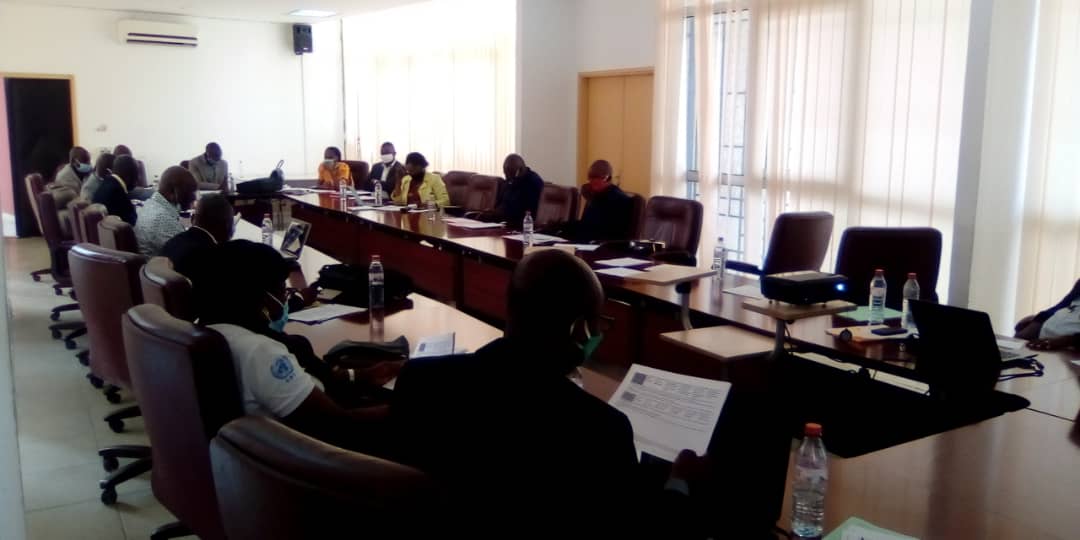
Overall, the SDG 6.5.1 indicator score of 40% obtained at the end of the consultation, shows an increase of 8% points as compared to the 2018 baseline report score (of 32%), with the “Enabling Environment” section having the highest score and Finance the lowest. In order to accelerate the implementation of indicator 6.5.1 of the SDGs and improve the low score sections, the following recommendations were made at the end of the workshop discussions:
- Take into account gender issues, vulnerable groups and the private sector, at all levels, in all IWRM-related initiatives;
- Governmental authorities and stakeholders, should :
- Finalize water policies and regulations ;
- Establish and operationalize sub-national management bodies (basin management units and transfer of competencies to local governments) for a better supervision of IWRM.
- Establish water resources management bodies and mechanisms;
- Develop and densify water resources monitoring tools;
- Improve the financing of IWRM at all levels, by increasing the government's budget allocations, creating mechanisms for available funds to be evenly distributed and diversify funding sources.
- Strengthen the organizational, technical and human resource capacity of government authorities and all IWRM stakeholders, to ensure efficiency in the implementation of IWRM.
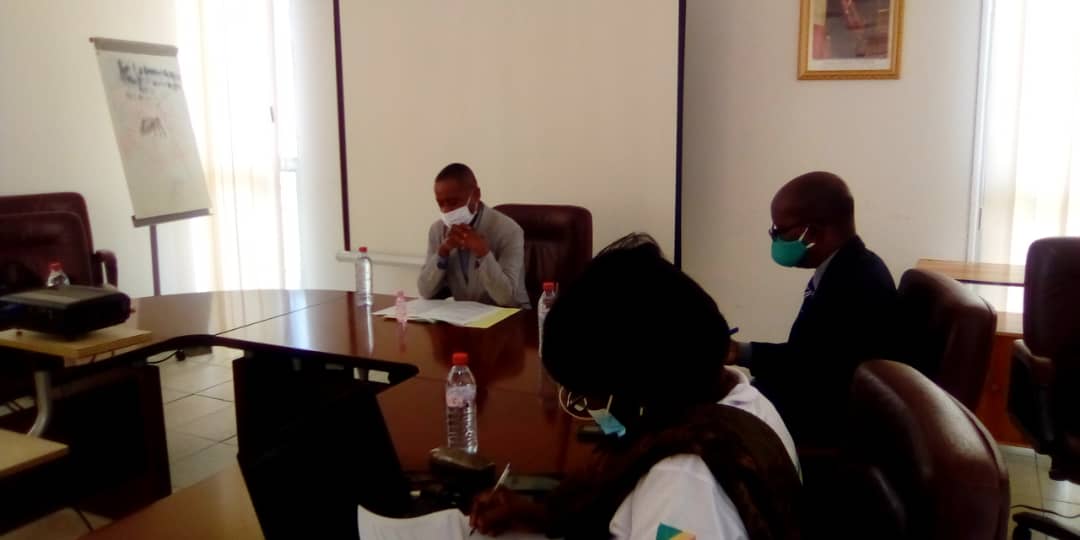
The workshop ended on a high note with closing remarks from Mr. Loussoukou Dieudonne during which he thanked the participants for their contribution, while reminding them that stakeholder participation is very important in the successful implementation of IWRM in the country as it allows for mutual exchange on challenges in the water sector and joint proposed solutions. The 2020 SDG 6.5.1 monitoring report for the Republic of Congo was consolidated by the taskforce after the workshop taking into consideration all the inputs from the group discussions and submitted to UNEP within the July 31st deadline.
